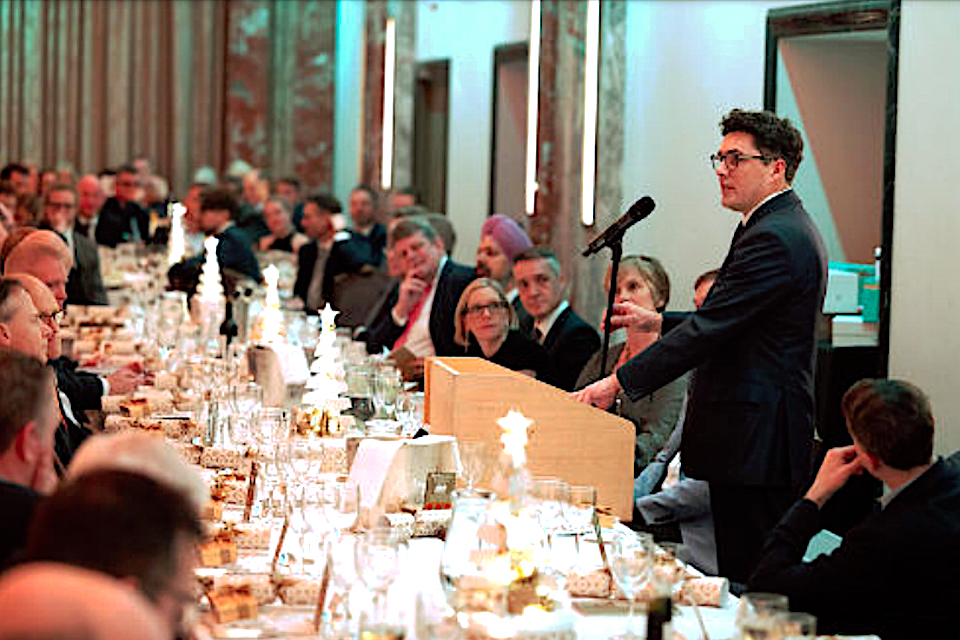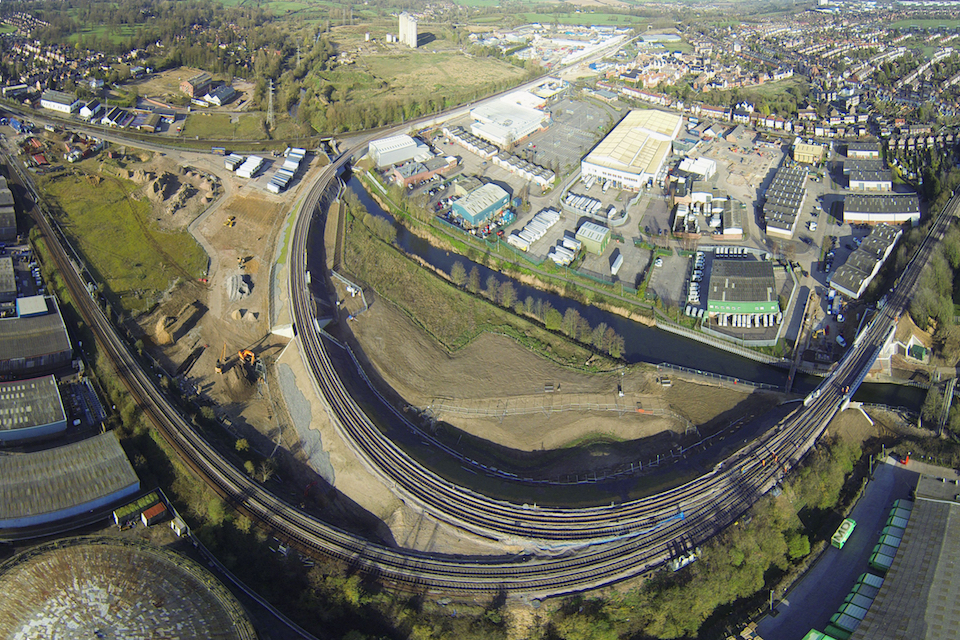There is a pioneering scheme at the Port of Southampton, encouraging intermodal logistics customers to switch their loads from road to rail. That scheme should be rolled out across the UK. Rail minister Huw Merriman wants that if the ruling Conservative Party is returned to power in the forthcoming general election. That was a key takeaway from his side of the George Bradshaw Address in London on Tuesday, 20 February.
A debate replaced the usual keynote format for the 2024 George Bradshaw Address. The annual lecture is named after the pioneer of unified timetabling and Victorian travel blogger and is organised by Rail Partners, the industry representative body. Incumbent rail minister Huw Merriman went head to head with his counterpart Stephen Morgan from the opposition Labour Party. The event was held in front of an industry audience, including high-level representation from the freight sector.
Reform will shape the railway for generations to come
In his host’s introduction, Andy Bagnall, Rail Partners’ chief executive, left the audience in no doubt about where the industry stands and what they face in the coming twelve months – perhaps even sooner. “While the railway might not matter for this election, this election really matters for the railway”, he said. His emphasis was made on the coming general election, which, by British law, must be called within the next twelve months. Most political commentators believe that the country will be at the polls much earlier. Some have even suggested that this May could be the date.

What is uniformly believed is that the government will change – and that Labour will take control. “Whoever forms the next government will find the choices they make will shape the railway for generations to come”, said Bagnall. The Address was complemented by the launch earlier in the day of the draft Rail Reform Bill – a proposal for a law that will fundamentally change the railways. Andy Bagnall says that the greatest danger in approaching rail reform is to misread the causes behind the industry’s problems.
For freight, the story is different
Huw Merriman presented a robust defence of government policy on the railways, dating back to the privatisation of the 1990s. He reeled off a long list of programmes that he said the Conservative Party has delivered for the railway and the economy at large since the privatisation of the 1990s. The long-term growth, he said, that has resulted from that commercial freedom, culminating in the support afforded to the railways during the pandemic, and finally, how they intend to reform and renew the railway in future.

Stephen Morgan was less enthusiastic about the benefits of privatisation. His Labour Party has already vowed to enact a programme of re-nationalisation, taking passenger franchises back into public ownership as each contract runs out. For freight, the story is different, and Labour proposes to leave that sector in the commercial marketplace. He did not argue with Merriman’s port incentives nor the stated intention to move more freight off roads and onto rail. Merriman referred to the freight growth target, set at 75 per cent by 2050 – although he questioned the modest ambition in reaching that target.
More freight trains are hard to argue against
There was a significant level of agreement on the direction of travel for the railway. However, the Labour Party’s fundamentally different policy (nationalised direction instead of free market economics) could deliver that growth by a radically different route. Ideas such as more freight capacity across the north of England and more freight trains out of Felixstowe seem hard to argue against, regardless of political persuasion. However, when directly questioned from the floor on the subject of freight-specific infill electrification, neither the minister nor his shadow were willing to commit to a definite programme of investment.

The recurring theme of the modal shift was highlighted by Andrea Rossi, the chief executive of DB Cargo UK. “Our customers have multiple modes of transport to choose from,” he said. “Since privatisation, freight operating companies have invested around three billion pounds in a very, very competitive environment.” Rossi queried the proportionately faster-rising costs of rail operations (versus road) and asked what either party might do to level the playing field. Predictably, Huw Merriman took the opportunity to single out reinvested HS2 money (after the cancellation of the Birmingham – Manchester section) and to make the claim that his party would make up the ‘cross-border’ deficit from an axed freight facilities grant scheme backed by the Scottish National Party, who rule the devolved government there.
The Sky News presenter, moderating the debate, began by uttering that most mixed of metaphors: “Railways are at the crossroads.” However, Tamara Cohen did however grasp the fundamental point for the industry. “Andy said that rail is not going to be a top order issue at the election, [but] it is at the heart of things that are, whether it’s the economy, the cost of living, climate change, social mobility, housing. You name it, [rail] will be part of a very busy election campaign.”